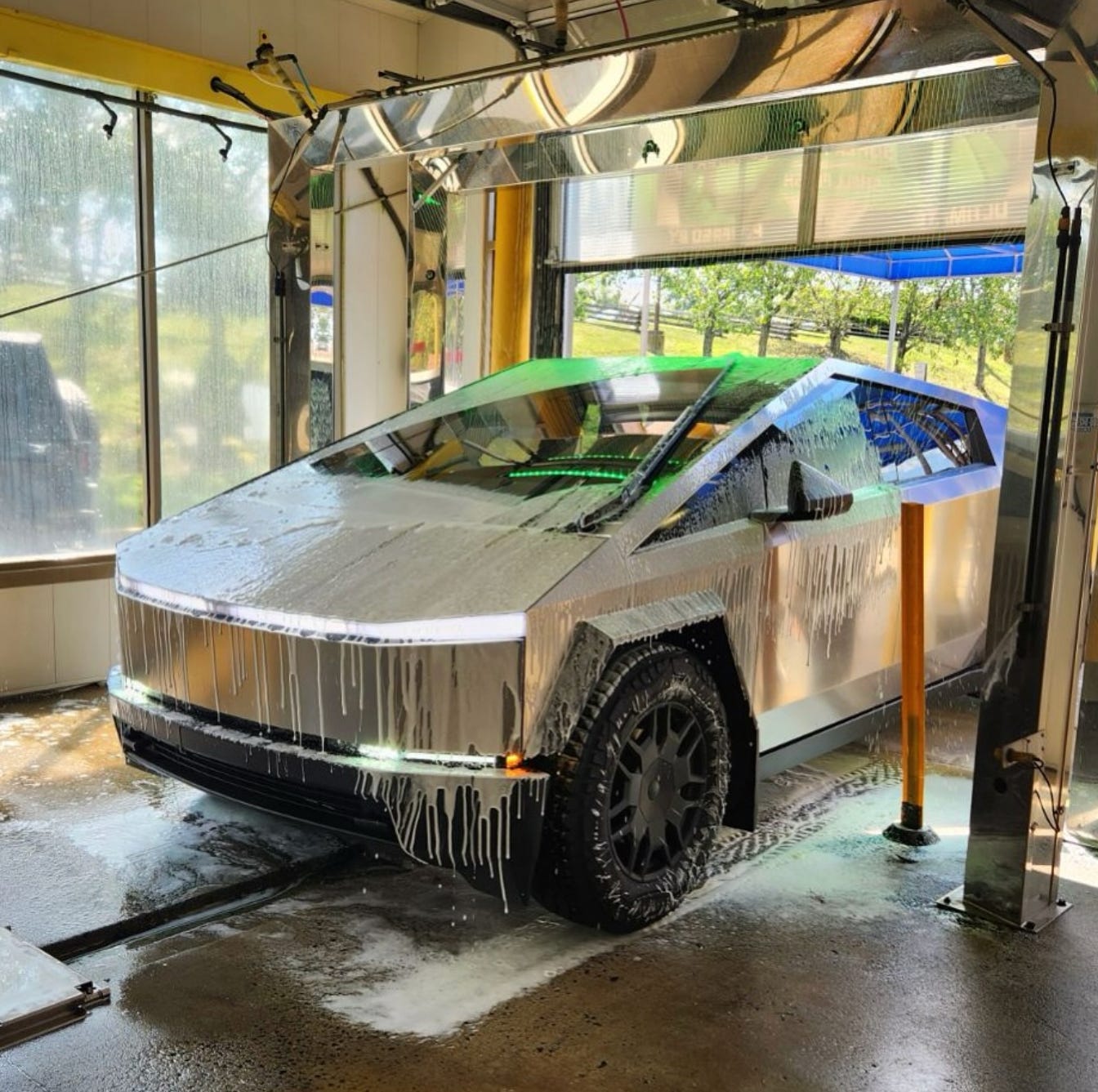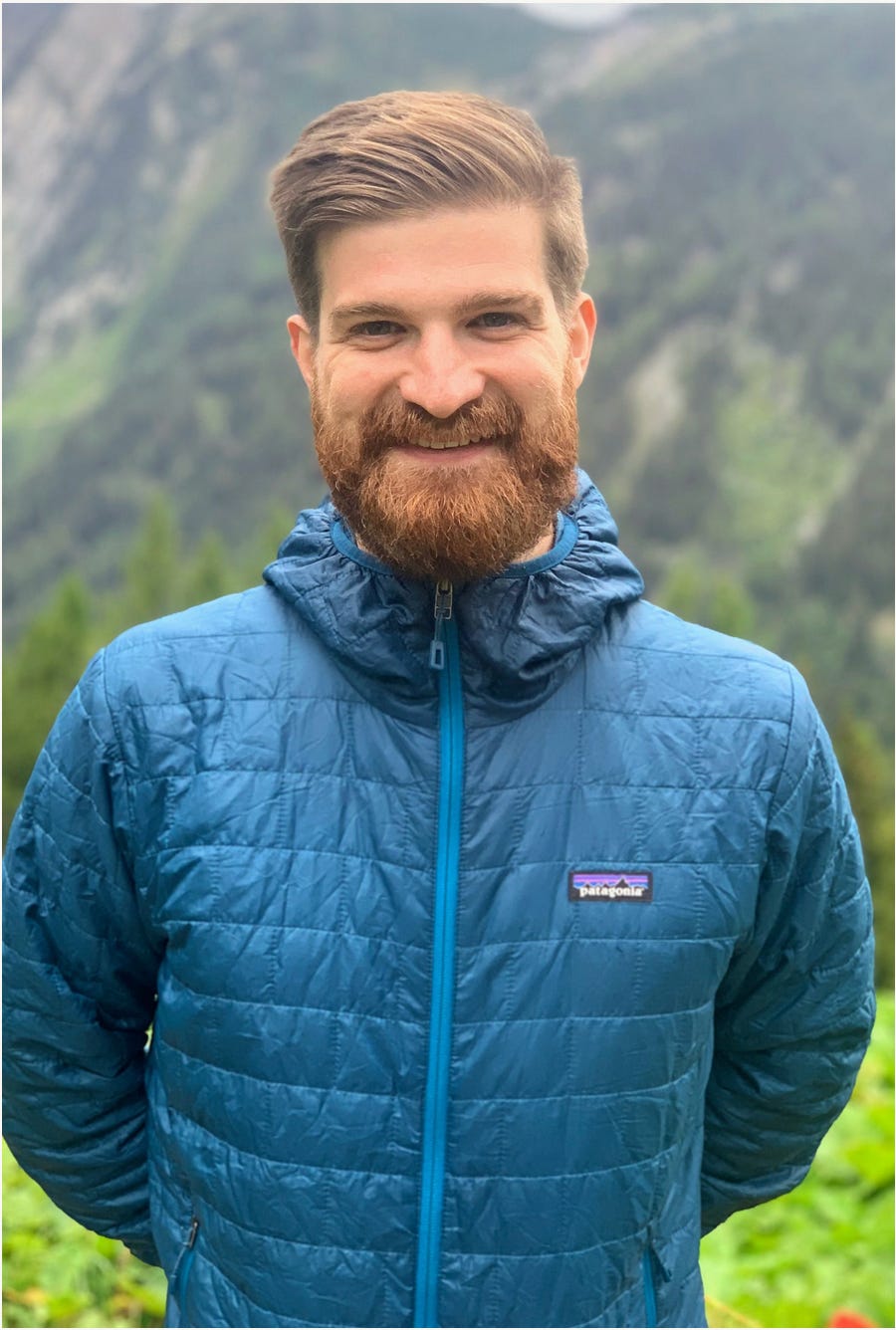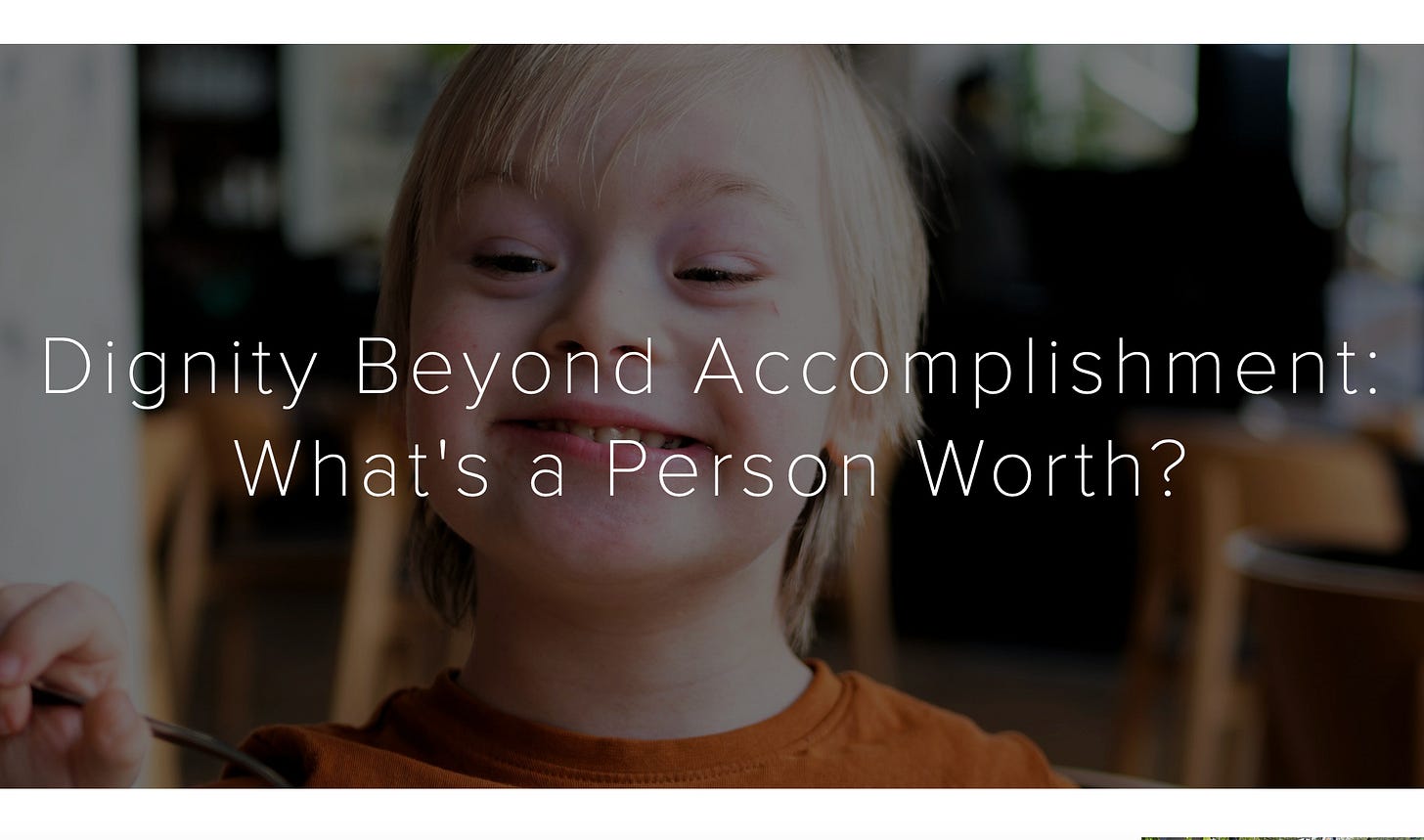NEWS FROM THE ROW HOUSE
In this edition I’ll briefly review our inaugural Forum in downtown Lancaster, PA in which a family of six set up a campground and talked about their 18-month odyssey in an RV. Over 100 people showed up. So either their topic was muy interesante, or it’s tough to resist s’more-like snacks in August.
Next I want to offer a very squishy apologetic for why this newsletter is called permeability. I mean, no doubt you’ve wondered yourself why I didn’t name it something resolute like immutability or monumental like Todd.
Then I’ll introduce you to our next Forum speaker, Dr. Justin Hawkins, and why you won’t be disappointed if you join us for his take on human dignity, a perennially vital topic for all of us to reflect on.
If you’re a Row House Member, you should’ve received a survey. Your ten minutes will make a big difference in how our mission impacts and benefits you. If you missed the email or trashed it (for shame!), or if you just lllove surveys, jump on it here:
Thanks!
What Just Happened?
I glance back at a recent event and relay some thoughts.
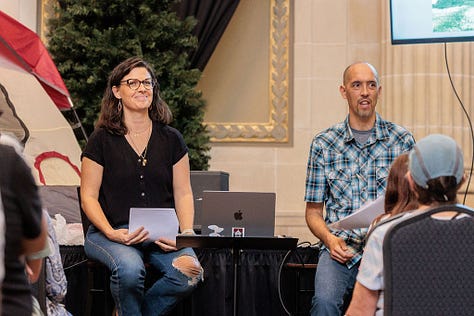
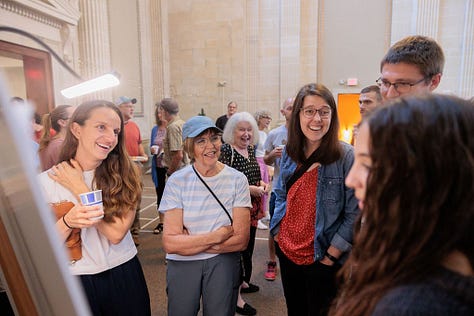
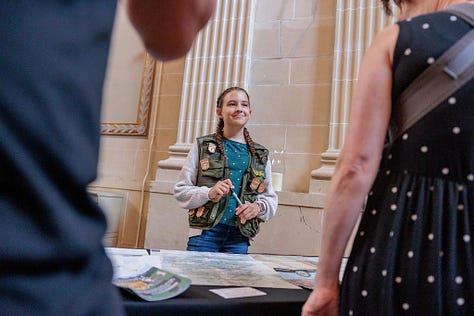


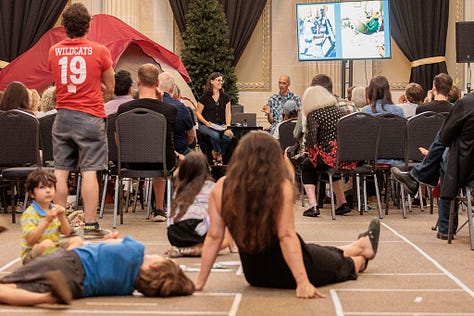
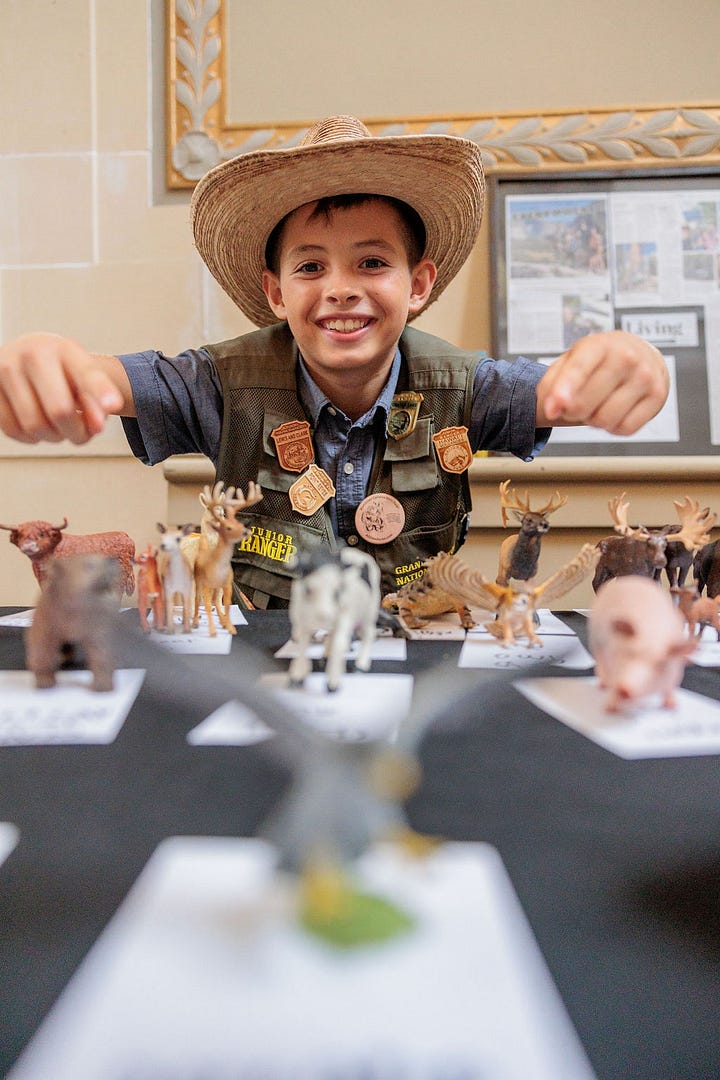
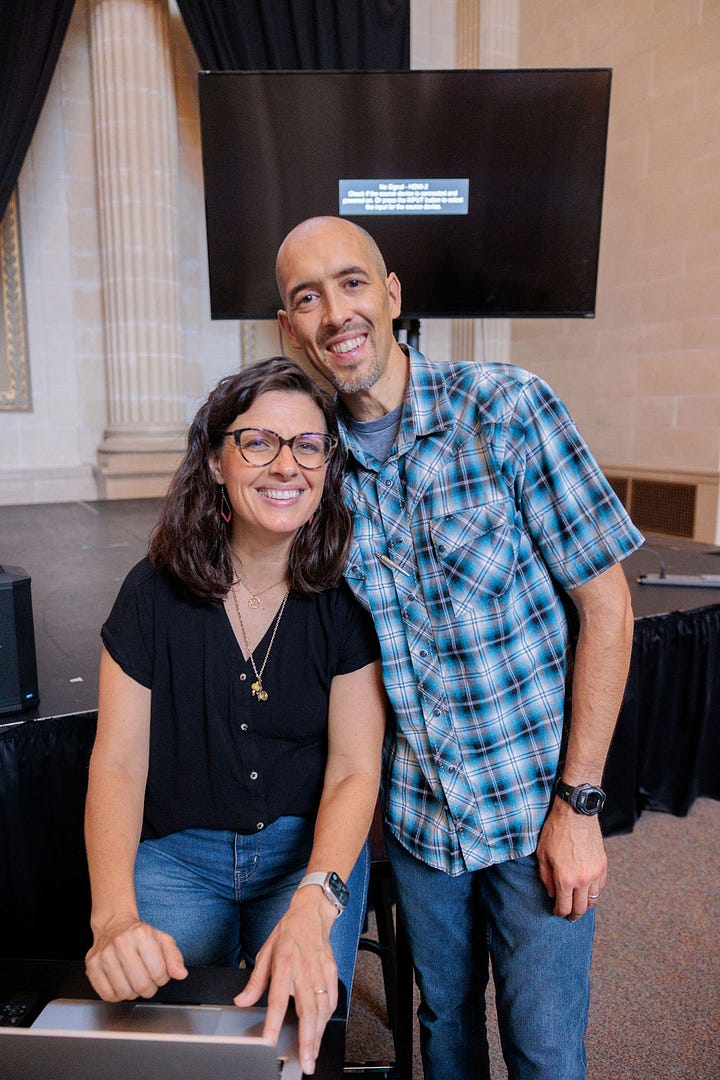
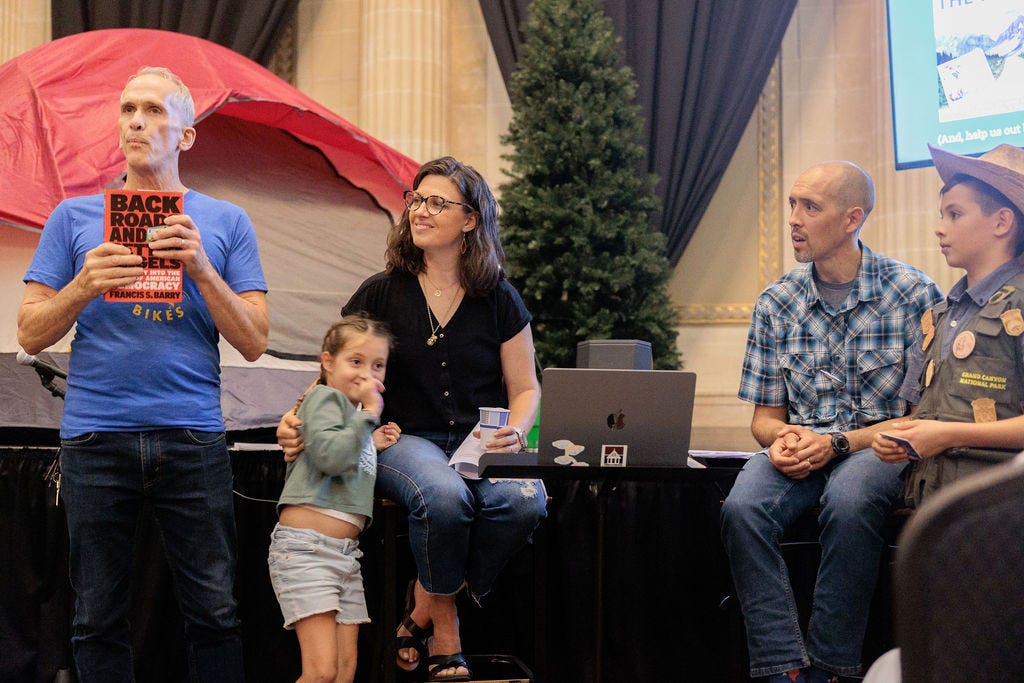
Here’s a reflection from Justin:
Big things in life are hard and take time to fully explain. During the forum I think Sarah and I both wanted people to know that traveling around the country is challenging and extremely rewarding but mainly in ways you may not initially expect. It’s interesting how often we all seek out something in life only to find it was underwhelming in the end or it was far more spectacular than they ever dreamed but not in the way they expected.
Traveling with a family in an RV is exactly that. It is breath-taking, it’s amazing, it’s a constant struggle and on top of it all, it is rewarding in so many ways that we are still discovering each day. One may think that traveling provides a great sense of adventure…it does, but it also provides unity both within the family and within our country. This trip provided an opportunity to see famous scenes displayed on TV, movies, books and music but also put stereotypes, both good and bad, on center stage for us to fully immerse ourselves in and better understand.
A great sign of a good Q&A is that when it ends, the questions continue. People were very engaged and one question led right into the next.
Lastly, our kids loved the event!
They loved that they were able to contribute in their own unique ways and share with some level of expertise about what they learned. They loved engaging with others. It was like elevated show-and-tell for all of them!
I was struck by two things on Friday August 9th:
First, the Geissingers truly pulled off an immersive event for us that mirrored the kind of planning, dedication, and execution any group must embrace when embarking on a cross-country road trip. These folks were so fun to work with! And I’m indebted to their creative touches:
A tape outline on the floor of the scale of their rolling living quarters
All the s’mores, of course, minus a blazing fire which is not permitted in the Great Hall of The Trust Performing Arts Center. Kill joys and fire marshals, amIright?
A tent back drop, faux fire ring, and hanging lights transformed the old bank building into a place you’d want to camp
Second, the crowd was very lopsided. I mean that in the best possible way.
Usually about two thirds of our participants are Row House Members and their guests. The rest are general admission with half of them being regulars and half being “off the streets,” i.e. new friends.
The Geissingers, through their myriad connections in the county and their story itself, drew in a ton of newcomers. I was like, “Hey, are all these people your friends?” And they were like, “We don’t know half these people!”
This ratio on one level is very satisfying. I started our Forums to serve as a genuine outreach to a public audience.
I certainly am not trying to create a Christian clubhouse atmosphere of shared lingo and expectation. If we’re seeing new faces at each event we’re on the right track.
Thanks, G-Family!
Tomsées
In which I share a short take on Christ and culture.*
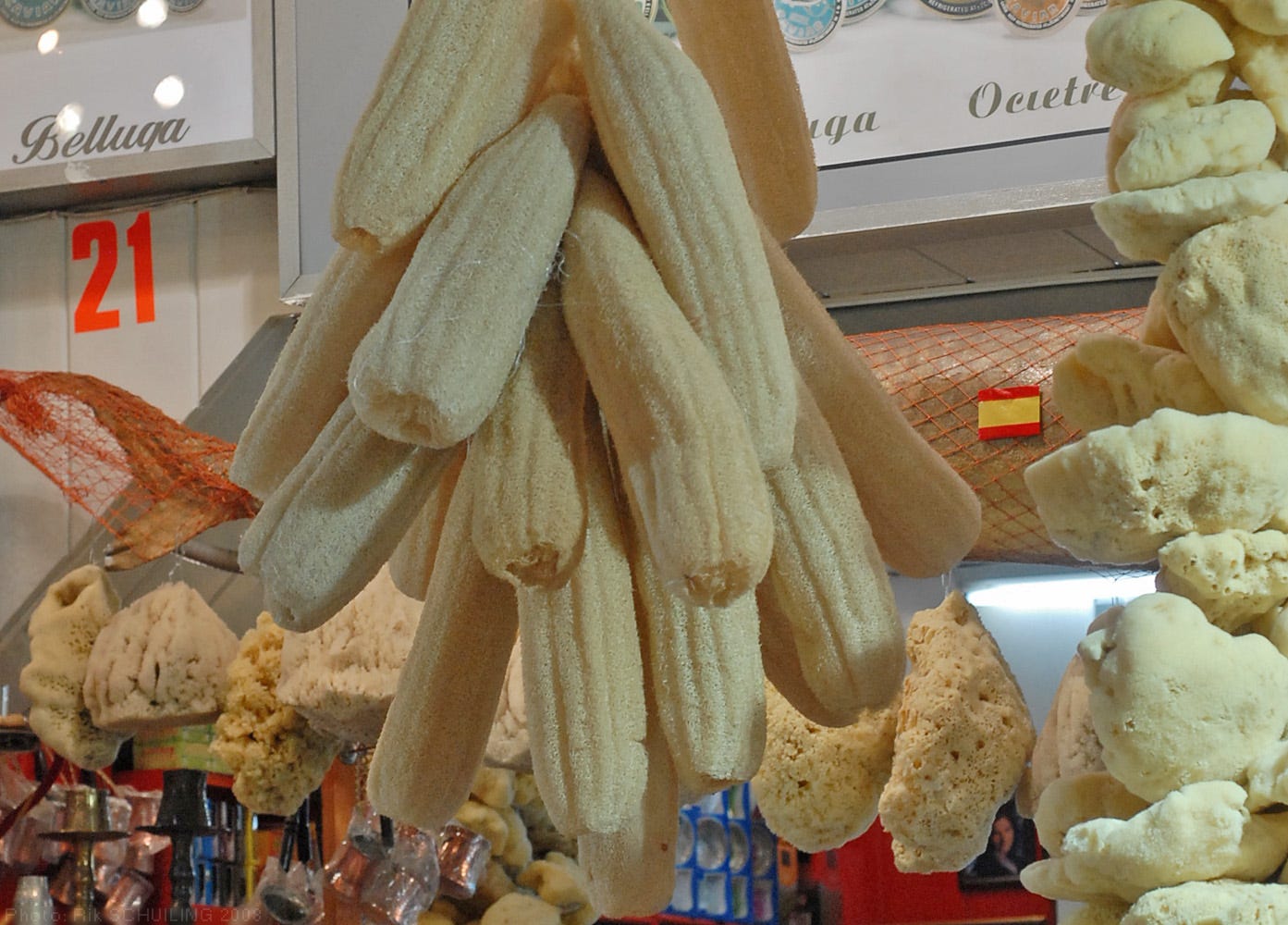
Behold the Sponge
For where jealousy and selfish ambition exist, there will be disorder and every vile practice. But the wisdom from above is first pure, then peaceable, gentle, open to reason, full of mercy and good fruits, impartial and sincere. And a harvest of righteousness is sown in peace by those who make peace.1
Somewhere, somebody must’ve used the term permeability to describe a faithful Christian posture toward culture. Whoever it was, they have their reward, and I’ve been sponging off the notion for years.
Last pun, I promise.
The “sea sponge” Wikipedia article sends me into a state of heebie-geebies. It’s because, like everything else in nature, the complexity, mystery, and beauty, of the humble sponge is dumbfounding.
Most sponges build a hard skeleton as nutrients wash in and out of them. A surfer could get roughed up on one if he biffs it on a reef. But the soft ones are what you’re probably acquainted with.
As tweeners my buddy Tony and I were introduced to sponges through regular washings of our dads’ cars. We used both the natural kind (pictured above) and the synthetic ones. It was only in adulthood I learned the natural ones had once been living organisms. 🤯
I’m fascinated with sponges because of their permeability. They can take in a lot of material and push just as much along without losing themselves in the process.
The same could be said for porous rocks and just about every tissue in our human bodies. The opposite can be said for the Tesla Cybertruck.
In a Car & Driver video a presenter hauls off and kicks the side of one of these mastodons, demonstrating its impact-resistance, stainless steel sides. Cool, I guess.
If you want a car that’s utterly impenetrable, short of owning a tank, you can put yourself in a futuristic wedge of steel and ride around with your mutt Elon in the bed. Just be sure to open the tonneau cover for him so he doesn’t suffocate.
But if you want to be more of a person and less part of a machine, try permeability. Get out and walk. Ride a bike. Embrace your God-given “vincibility.”2
We humans are by nature permeable. We have no exoskeleton. We are molted lobsters, fleshly little things that have to hustle to make shelter and go places where we can survive.
We’re not invincible, and we weren’t meant to be.
I believe the Bible’s story of humanity being created in the image of God is key here. And it’s the reason we’re bringing in Dr. Hawkins next month to address the ontology of being human.
Throughout the Bible God goes out of his way to relate to us, to become permeable to the point of becoming human. Jesus opened himself up to the worst of our conditions: Misunderstanding, wanderings, pain, loss, grief, the whole nine yards of our shattered existence.
As the model human and savior, we see him in the Gospels being effective at bringing Good News to shattered people, and we see him being affected by the glories and vagaries of their common humanity.
He was solid and strong yet permeable. You might he say he was squishy, which is not at all the same as wishy-washy.
I’m not sure how far I should push the sponge analogy!
One thing I’m sure of: Christians, of all people, can risk permeability. They can afford to be “open to reason” while serving their Lord. They can risk outrageous acts like hospitality, forgiveness, and sympathy.
What would it look if we worried less about what flows into us and more about what we give out to the world?
*Tomsées is a nod to Pensées, an eclectic collection of writings by Blaise Pascal which were a work of apologetics for the Christian faith, published posthumously in 1670.
Let’s Talk About the Future
A few questions for you to consider ahead of our next event: Sept 13th in downtown Lancaster, PA!
We’re pleased as punch to welcome an engaging and young professor to our next Forum on September 13th. Dr. Justin Ryan Hawkins will speaking for us and doing the classroom thing by taking your questions. So, plan to come and bring a friend.
He’s got skin in this game of human dignity and worth. His own sister was born with Down Syndrome, and he applies his theological and ethical studies to our times from a lived experience.
He tells the story in this Mere Orthodoxy column. And you can read more articles and learn about Justin Ryan Hawkins at his site.
Talk to Me:
What has been your experience with a disabled person?
How do you feel about the trend in some developed countries toward doctor-assisted suicide and abortion of chromosomal-deficient fetuses?
What human attribute is central, in your understanding, to being human?
Volition?
Intelligence?
Emotion?
Relationship?
Creativity?
Productivity?
But seriously, email me your thoughts! Or put them in the comments.
I hope to see you and yours in downtown Lancaster soon! Look me up anytime. I’m easy to find.
Cheers,
Tom Becker, Founder & Curator of The Row House Forum
James 3:16-18, English Standard Version of the Bible. James is the only New Testament writing considered “wisdom literature.”
I’m speaking at The Row House Forum twice in the coming year: A two-part series I’m calling “Practicing Vincibility.” I hope you’ll come out and heckle me. I mean that in the most positive sense, of course.




